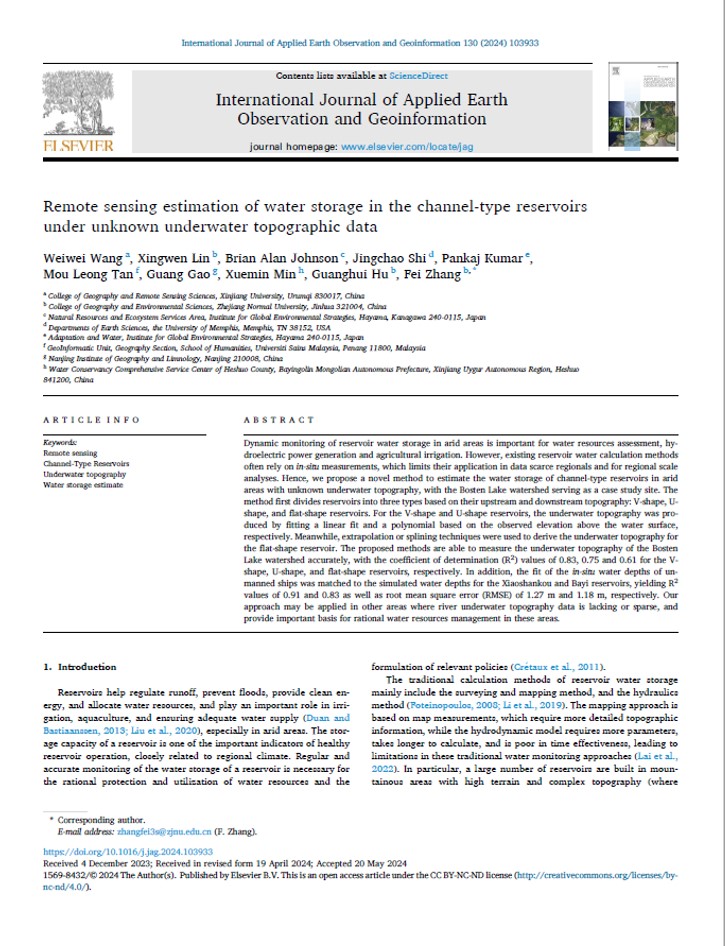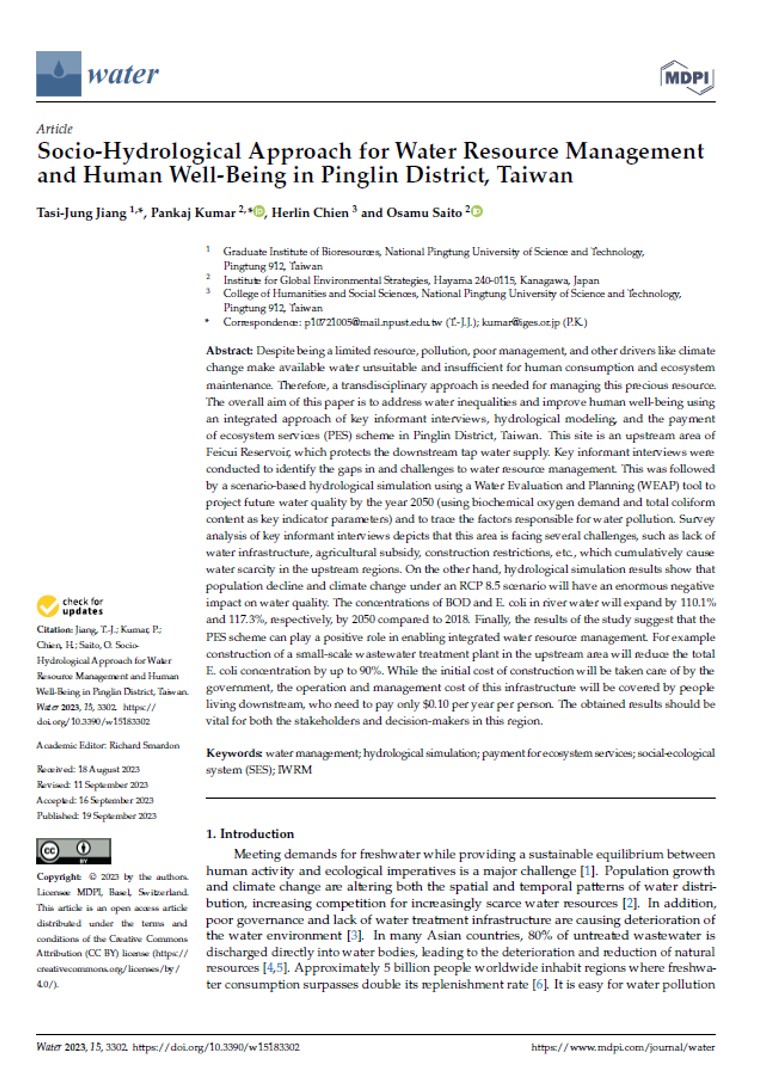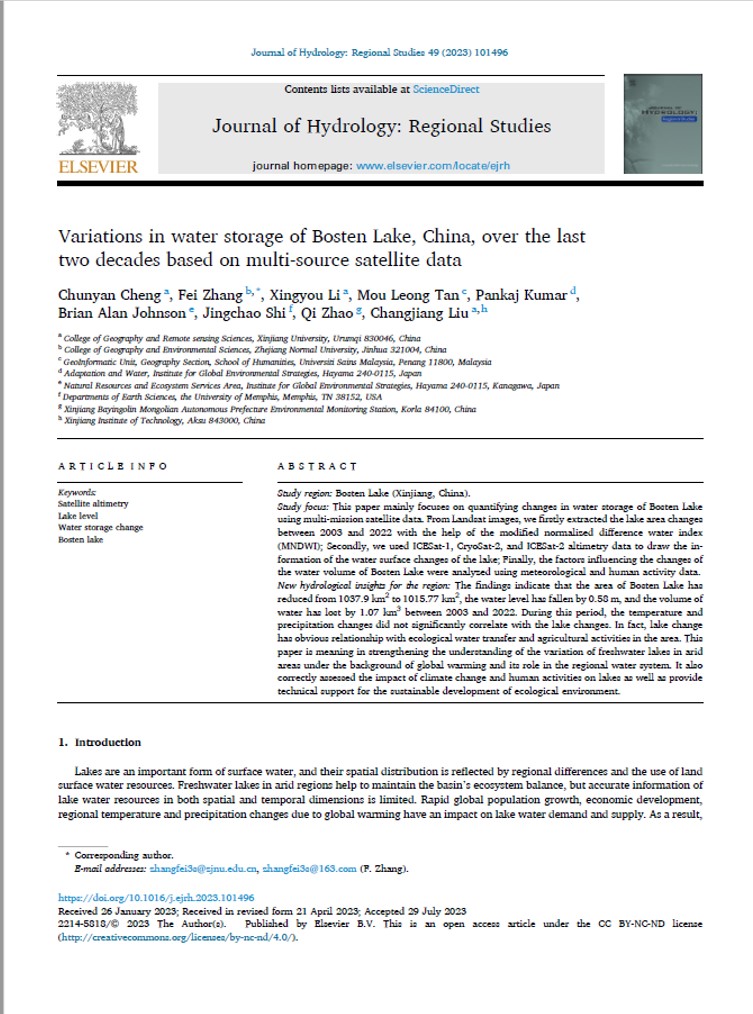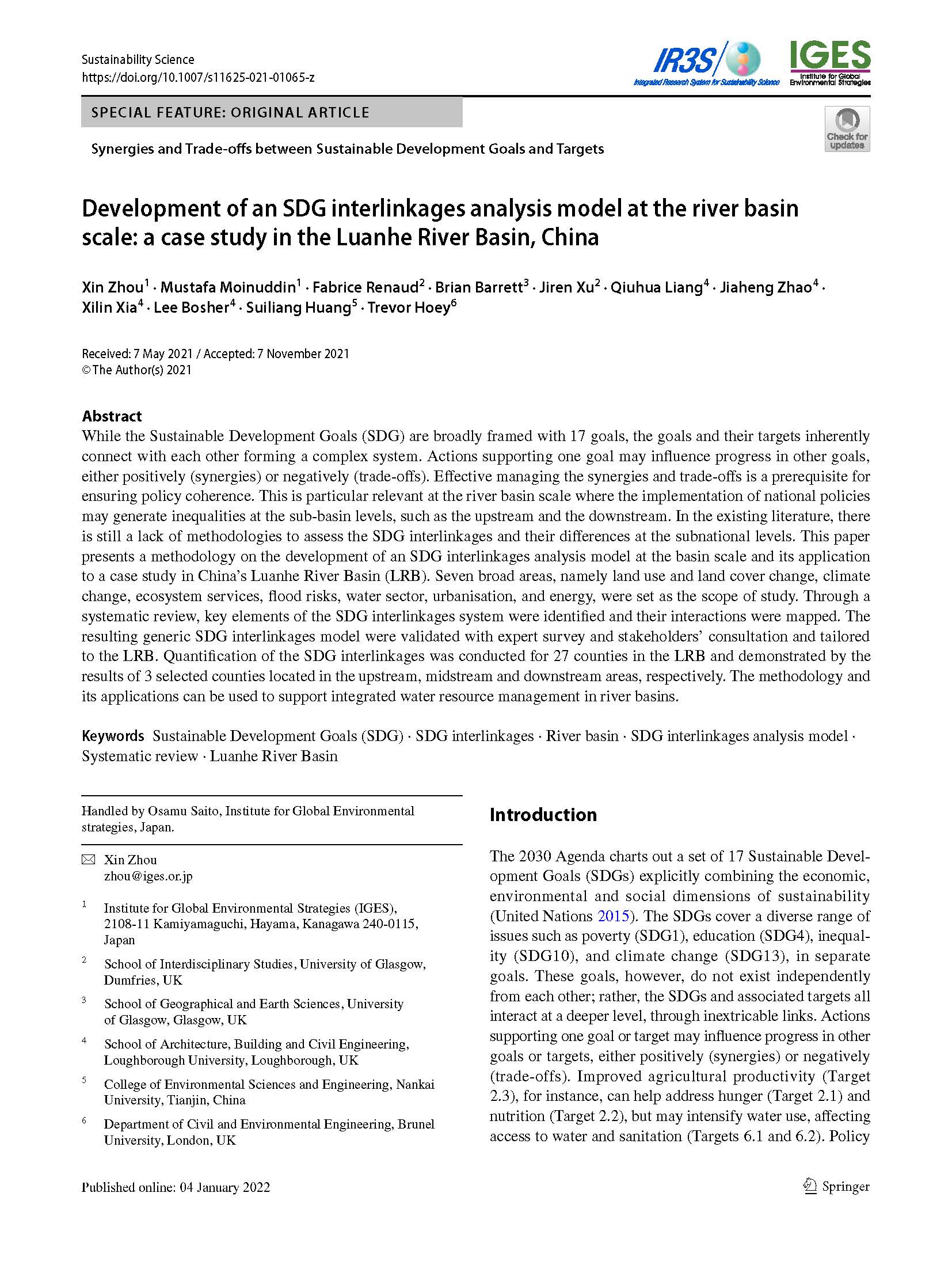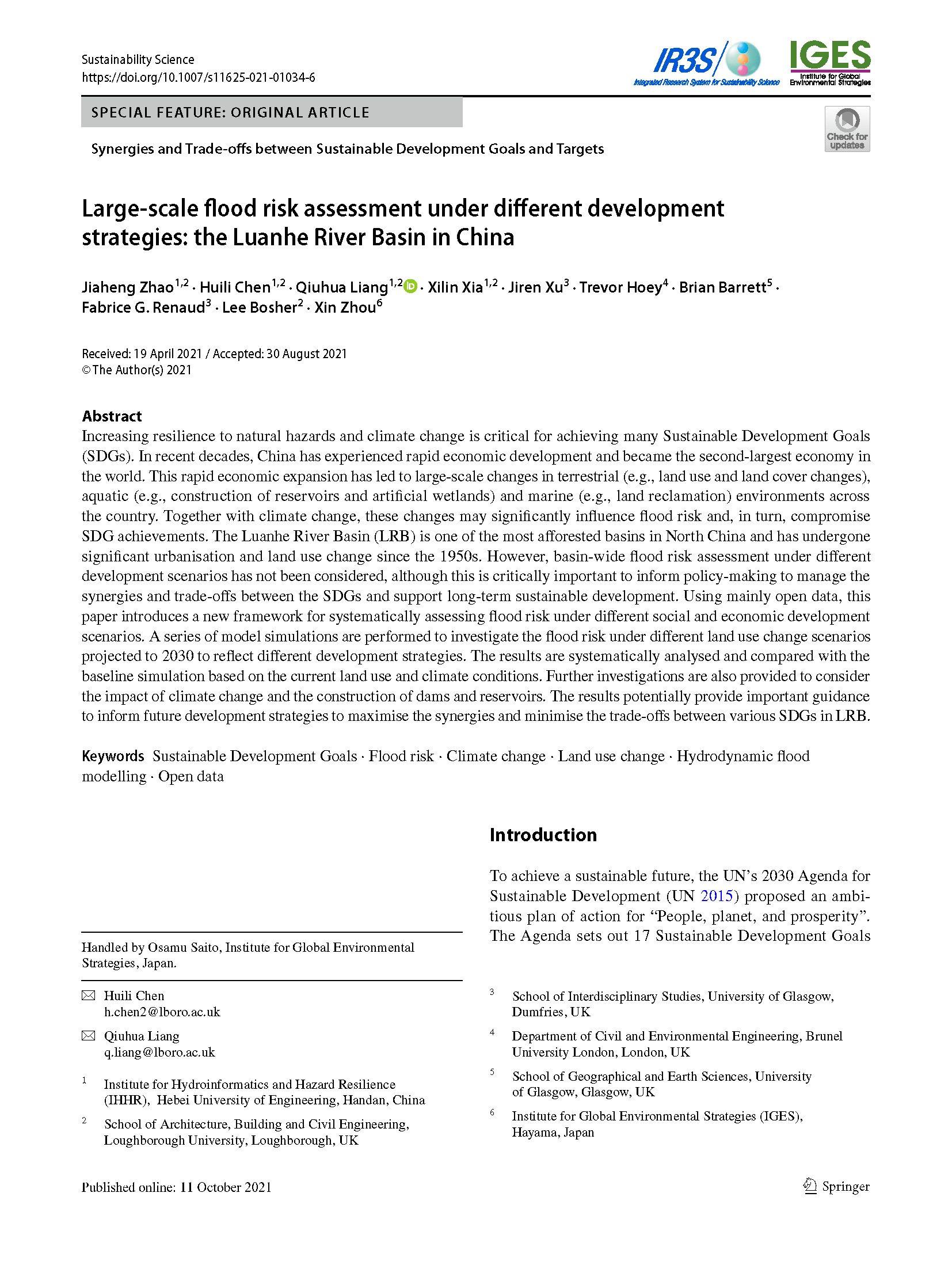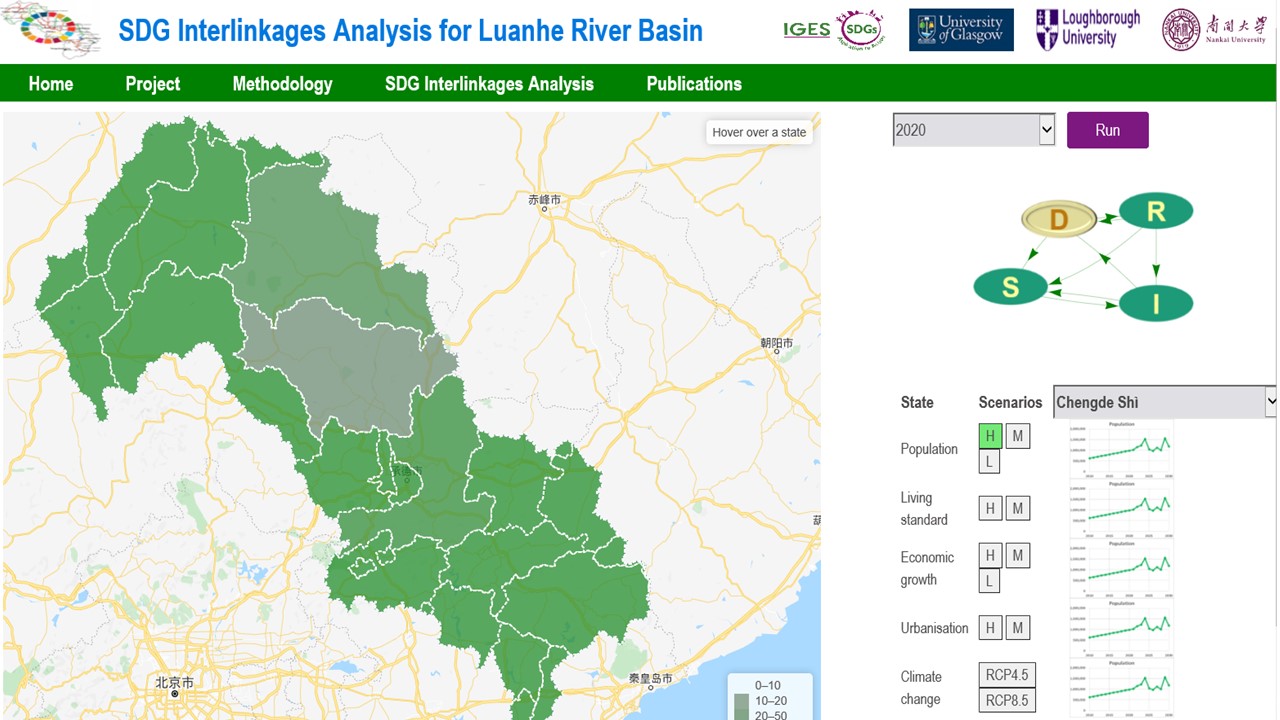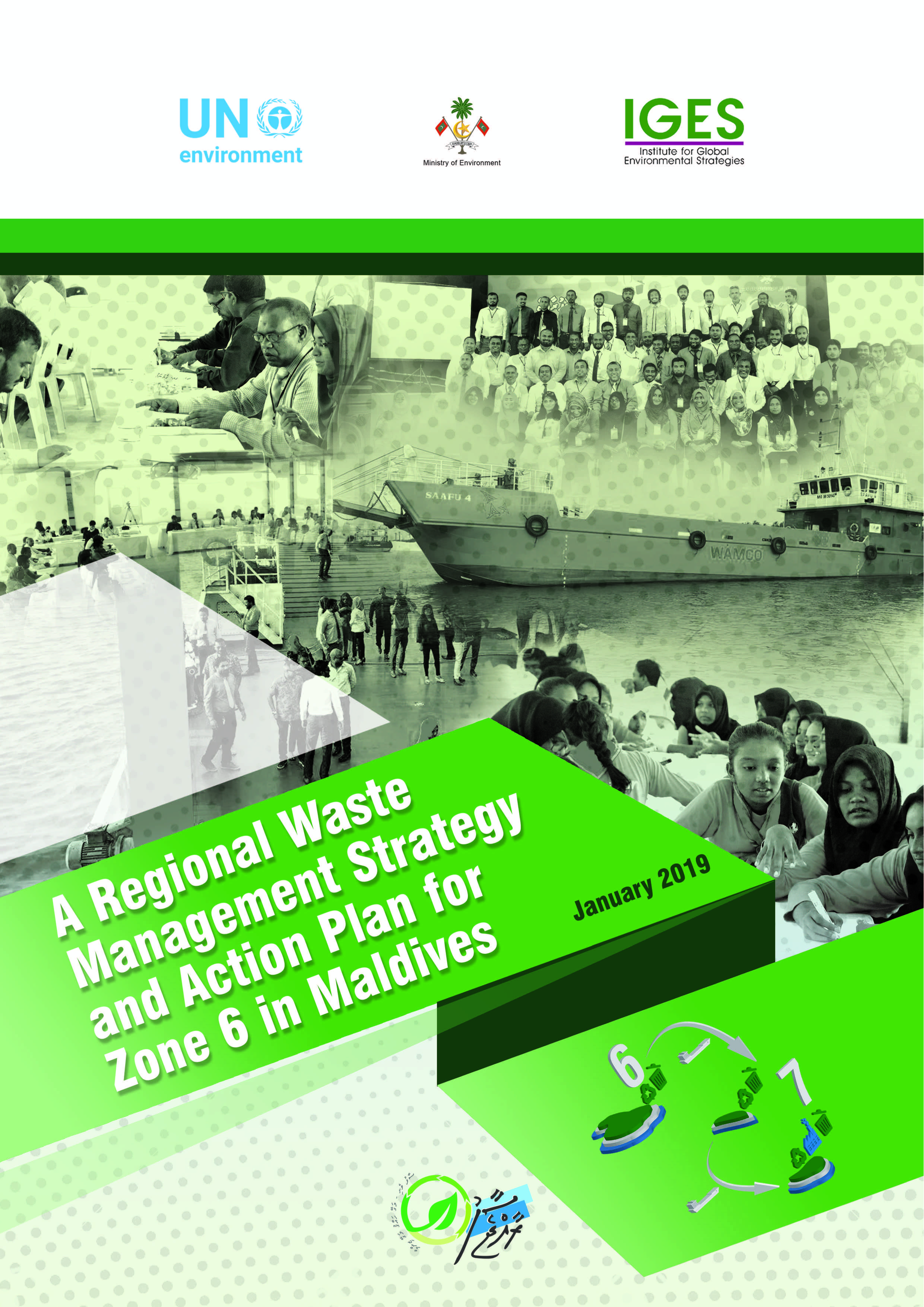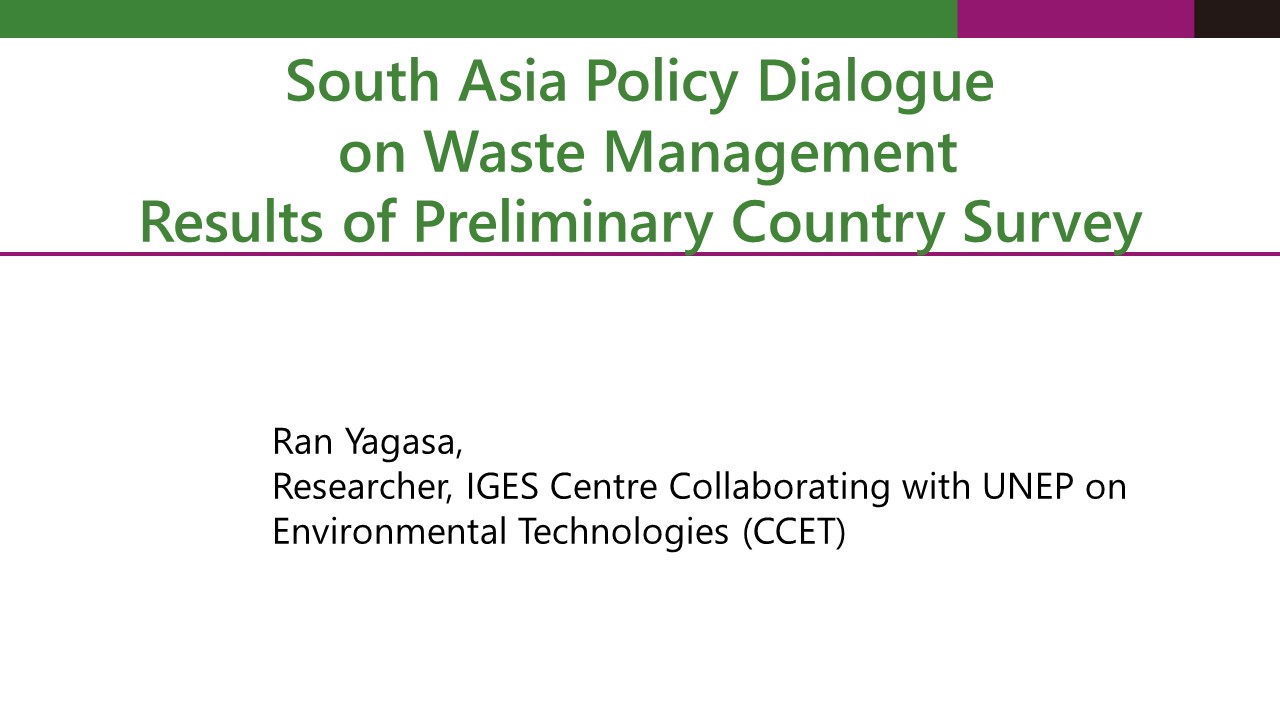In International Journal of Applied Earth Observation and Geoinformation
Dynamic monitoring of reservoir water storage in arid areas is important for water resources assessment, hydroelectric power generation and agricultural irrigation. However, existing reservoir water calculation methods often rely on in-situ measurements, which limits their application in data scarce regionals and for regional scale analyses. Hence...

